Coffee Basics
Coffee and Hormones: Understanding the Impact on Your Endocrine System
In exploring how coffee influences hormones, you’ll uncover surprising effects on your endocrine system that might change your daily brew. What are they?
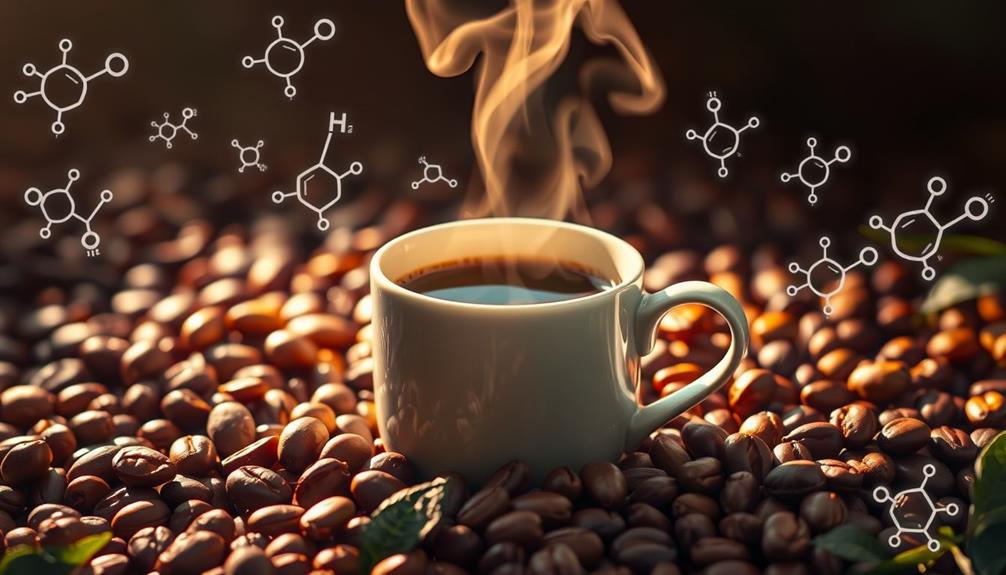
Coffee affects your hormones in several ways. Caffeine can spike cortisol levels, which may lead to stress and hormonal imbalances. It also decreases insulin sensitivity, raising your insulin production over time. For men, caffeine can increase total testosterone but may reduce its bioavailability. In women, higher caffeine can lead to lower testosterone levels. Additionally, your body's response to caffeine can differ based on various factors, including gender and health conditions. Limiting your coffee intake and being mindful of how it affects you can help maintain your hormonal balance. Find out how to optimize your coffee habits for better health.
Key Takeaways
- Caffeine can spike cortisol levels, potentially leading to chronic stress and hormonal imbalances within 30-180 minutes of consumption.
- Long-term caffeine intake decreases insulin sensitivity, increasing the risk of insulin resistance and affecting metabolic health.
- Caffeine influences testosterone differently in men and women, boosting total testosterone in men while potentially lowering levels in women.
- Elevated cortisol and SHBG from caffeine can inhibit testosterone's effectiveness, impacting hormonal balance in both genders.
- Limiting coffee intake to one to two cups daily and avoiding sugar can support better hormonal health and balance.
Hormones Affected by Caffeine
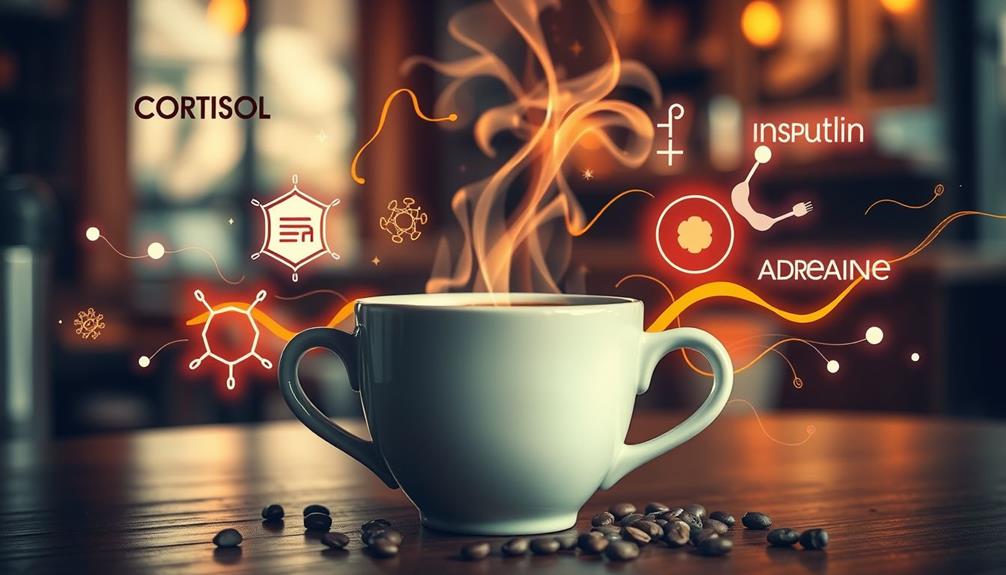
Caffeine affects several hormones in your body, most prominently cortisol and insulin. When you drink 2-3 cups of coffee, your cortisol levels can spike as caffeine stimulates ACTH production, with effects noticeable within 30 to 180 minutes. This elevated cortisol can contribute to chronic stress and lead to hormonal imbalances over time.
Understanding the effects of different brewing methods can also be essential, as various methods may influence the caffeine content in your coffee, impacting hormone levels even further. Additionally, various brewing methods affect caffeine content considerably, which is important for coffee enthusiasts to take into account.
Caffeine also impacts insulin sensitivity, decreasing it considerably. Research shows that after consuming 200 mg of caffeine twice daily for a week, your insulin sensitivity can drop by 35%. This reduction might require your body to produce more insulin, complicating metabolic health.
Moreover, caffeine influences testosterone and estrogen levels. While it may increase total testosterone, it can reduce free testosterone due to elevated SHBG levels, limiting testosterone's availability in tissues.
Notably, caffeine's effects on estrogen vary by race; for instance, Asian women may see higher estrogen levels with increased caffeine consumption, while white women might experience lower levels.
Caffeine's Impact on Insulin
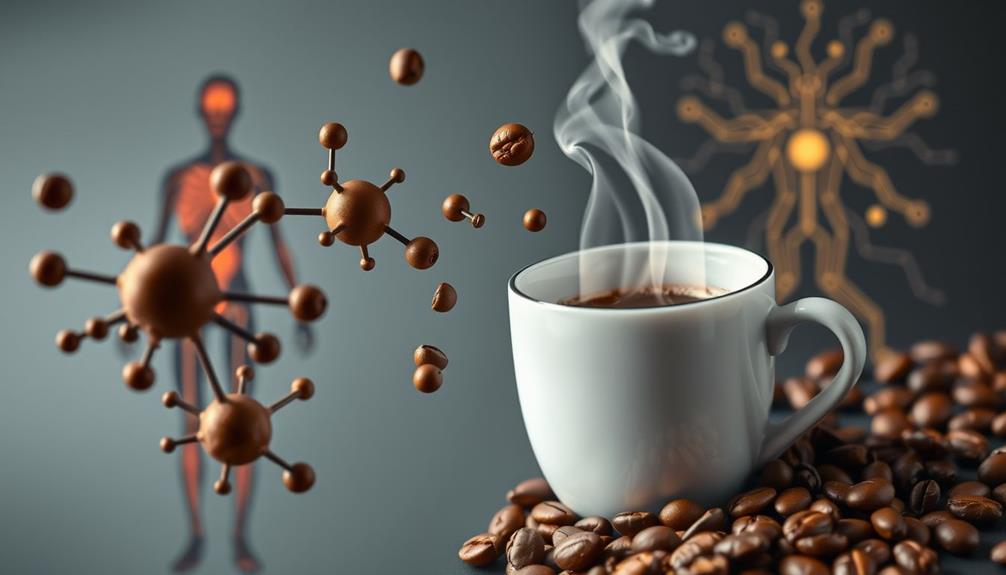
When you consume caffeine, you might notice a decrease in insulin sensitivity, which can lead to increased insulin production.
This effect is particularly concerning for those who engage in regular physical activity, as maintaining ideal insulin levels is vital for performance and recovery.
Studies show that after just a week of daily caffeine intake, your insulin levels could rise considerably. Over time, this could raise your risk of developing insulin resistance, so it's important to reflect on your caffeine habits, especially if you have sensitivity issues.
To support overall wellbeing, incorporating practices like yoga for back pain can help manage stress and improve metabolic health.
Insulin Sensitivity Reduction
After just one cup of coffee, you might experience a notable change in your body's insulin sensitivity. Studies show that caffeine consumption can reduce insulin sensitivity by approximately 35%. This means that while your glucose levels may remain stable, your body struggles to use insulin effectively, potentially leading to increased insulin production.
Here's a quick look at the impacts of caffeine on insulin sensitivity:
| Factor | Impact | Health Implication |
|---|---|---|
| Caffeine Consumption | Decreases insulin sensitivity | Increased risk of insulin resistance |
| Insulin Levels | Increases by 1.80 microU/mL | Potential for type 2 diabetes |
| Duration of Effects | Lasts up to 12 hours | Prolonged metabolic impacts |
| Glucose Metabolism | Remains stable | Compensatory insulin production |
| Long-term Consumption | Contributes to insulin resistance | Heightened health risks |
These hormonal effects highlight the necessity for awareness regarding caffeine consumption, especially for those susceptible to metabolic disorders. Over time, these changes could lead to significant health risks, making it crucial to monitor your intake.
Serum Insulin Levels Increase
How does caffeine affect your insulin levels? When you consume caffeine, your serum insulin levels can actually increase. Studies show that after caffeine intake, insulin levels may rise by about 1.80 microU/mL. This effect is significant because regular caffeine consumption can decrease insulin sensitivity by approximately 35%, which might lead to insulin resistance over time.
It's important to reflect on how other lifestyle factors, including dietary adjustments for health, can also influence insulin sensitivity.
In a controlled trial with healthy adults, caffeine elevated insulin production without changing glucose levels, indicating that caffeine impacts your hormone responses quite distinctly. Notably, these changes in insulin levels can last up to 12 hours after you've had caffeine, highlighting the long-lasting metabolic responses associated with caffeine intake.
While caffeine might increase your serum insulin levels in the short term, some research suggests that long-term caffeine consumption may actually correlate with a reduced risk of developing type 2 diabetes.
Long-term Resistance Risk
Caffeine's long-term impact on insulin sensitivity raises concerns for those who regularly consume it. Studies show that caffeine intake can decrease insulin sensitivity by 35%, leading to higher insulin levels after consumption.
For instance, a study involving healthy adults revealed a significant increase in insulin levels—1.80 microU/mL—after just a week of taking 200 mg of caffeine twice daily. This rise occurs while glucose levels stay stable, indicating that your body is compensating.
Moreover, individuals must be cautious about the potential risks and rewards of Bitcoin IRAs, as similar principles of evaluating impacts apply to various lifestyle choices, including dietary habits.
Over time, this pattern of increased insulin production can lead to insulin resistance, a major risk factor for type 2 diabetes. Additionally, caffeine can elevate cortisol levels, which may further worsen insulin resistance. Elevated cortisol can trigger a stress response, complicating your metabolic health and hormone levels even more.
If you're a regular coffee drinker, it's vital to reflect on how long-term caffeine consumption could affect your insulin sensitivity and overall health. Monitoring your caffeine intake and being mindful of these effects can help you manage your risk for insulin resistance and maintain better metabolic health in the long run.
Caffeine and Testosterone Levels
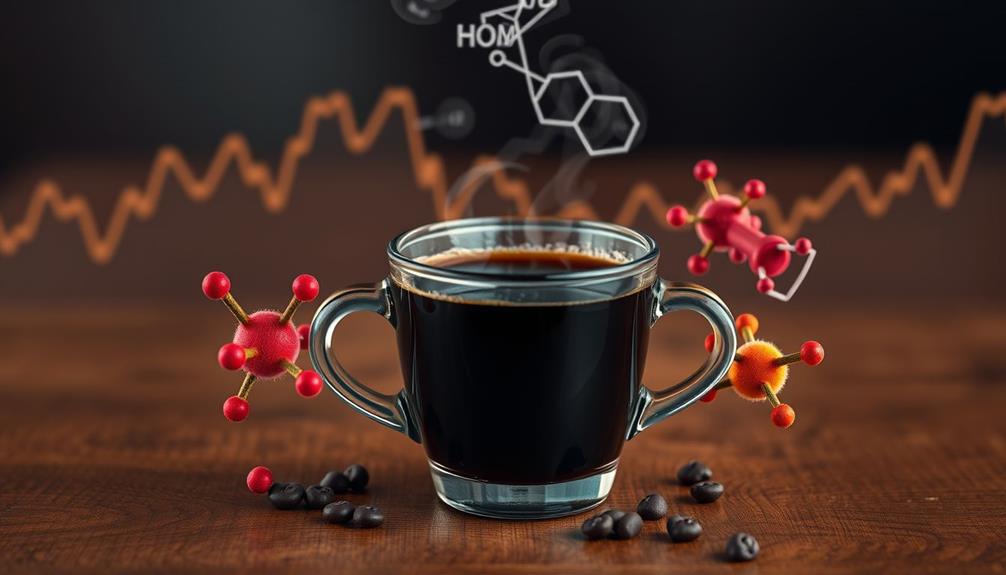
When you consume caffeine, it can impact your testosterone levels in interesting ways.
While total testosterone might increase, free testosterone could decrease due to higher SHBG levels, which affects how your body uses the hormone.
Additionally, juice diets that are high in antioxidants may also play a role in hormone regulation.
It's also important to note that men and women respond differently to caffeine, leading to varying effects on testosterone production.
Caffeine's Effect on Testosterone
Many people enjoy their daily caffeine fix, but its impact on testosterone levels can be complex. Research shows that caffeine intake may increase total testosterone levels in men, yet it can also decrease free testosterone due to higher levels of sex hormone-binding globulin (SHBG).
Understanding common financial terms can help you navigate your financial health, just as evaluating your caffeine consumption can aid in monitoring hormonal health. If you're a man, you might find that pre-workout caffeine enhances your training outcomes, potentially stimulating testosterone production while mitigating cortisol's catabolic effects.
However, the effects aren't the same for everyone. In women, higher caffeine intake may correlate with lower testosterone levels, which can lead to symptoms like fatigue and irregular menstrual cycles.
This disparity highlights how individual factors—such as genetics, health status, and lifestyle—play an important role in caffeine's hormonal effects.
Moreover, caffeine's influence on testosterone is intertwined with hormones like estrogen and cortisol, making it essential to reflect on your overall hormonal balance.
If you're monitoring your testosterone levels, it's worth paying attention to your caffeine consumption and its potential effects on your body. Balancing your caffeine intake might just help you maintain ideal hormonal health.
Free Vs. Total Testosterone
Understanding the difference between free and total testosterone is essential for grasping how caffeine affects your hormonal health. Total testosterone refers to the overall amount in your bloodstream, while free testosterone is the portion that's bioavailable for your body's use.
Caffeine intake and testosterone can lead to an increase in total testosterone levels, but you might experience a decrease in free testosterone, especially with rising levels of sex hormone-binding globulin (SHBG). This could potentially impact your testosterone levels' effectiveness in supporting muscle growth and overall energy.
Furthermore, as the demand for skilled professionals in tech rises, understanding AI Ethicist Jobs can provide insight into how emerging fields interact with health and well-being.
If you're consuming decaffeinated coffee, you may notice different effects on testosterone, particularly in women, as it can have the opposite impact. Individual responses to caffeine play a significant role; factors like health status, genetics, and lifestyle can all influence how your body reacts.
Additionally, pre-workout caffeine intake may enhance training outcomes and support testosterone production during exercise, helping to mitigate some of cortisol's negative effects.
Understanding these dynamics between free vs. total testosterone can empower you to make informed decisions about caffeine consumption and its impact on your hormonal balance.
Gender Differences in Response
Caffeine often affects men and women differently regarding testosterone levels. For men, caffeine consumption can boost total testosterone levels, especially when taken before workouts. This boost enhances their training outcomes by increasing workload and countering cortisol's catabolic effects.
However, for women, caffeine's impact is often the opposite. Essential oils for hormonal balance may provide additional support in managing hormone levels.
Here are some key points to take into account:
- Increased caffeine intake may lead to decreased testosterone levels in women.
- Hormonal shifts in women can influence the estrogen-to-testosterone ratio, affecting reproductive health.
- Higher levels of sex hormone-binding globulin (SHBG) due to caffeine can reduce testosterone bioavailability in both genders.
- Symptoms of decreased testosterone in women may include fatigue and irregular cycles.
- The effects of caffeine on testosterone in women are less clear and require more research.
Understanding these gender differences is vital for managing caffeine intake effectively.
If you're a woman, be mindful of how caffeine might affect your hormonal balance, particularly regarding testosterone and estrogen levels. Always weigh your personal health and consult with a healthcare provider if you're unsure about caffeine's effects on your hormonal health.
Caffeine's Role in Hormonal Balance
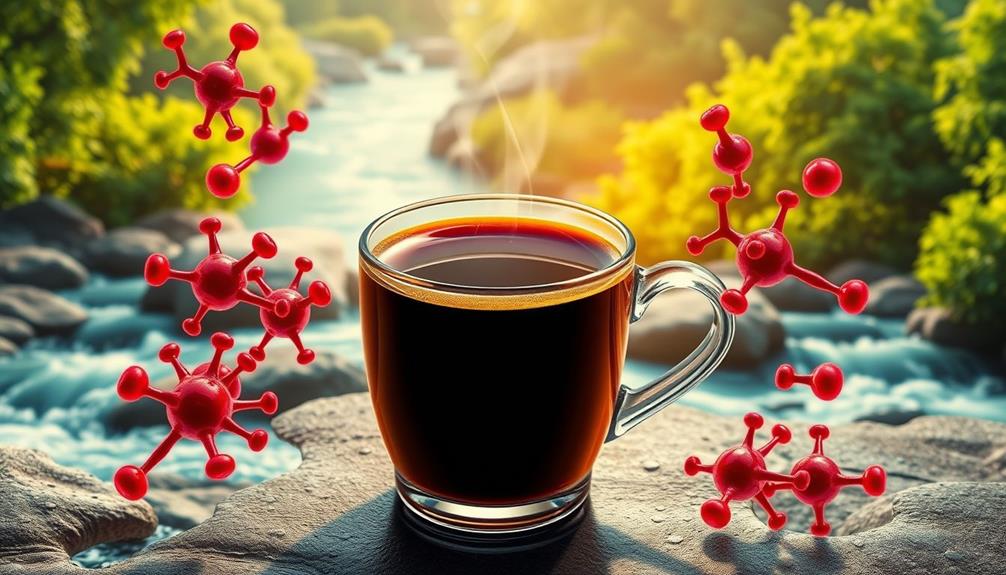
Balancing hormones can be tricky, especially when considering caffeine's complex effects on the body. Caffeine consumption can greatly impact your hormonal balance, primarily by increasing cortisol levels. Elevated cortisol can counteract testosterone's anabolic effects, potentially leading to hormonal imbalances over time.
For men, caffeine might boost total testosterone, while for women, it can decrease free testosterone due to heightened levels of sex hormone-binding globulin (SHBG). Additionally, maintaining a healthy lifestyle for longevity can further influence hormonal health.
Furthermore, long-term caffeine use may reduce insulin sensitivity, causing your body to produce more insulin and raising the risk of insulin resistance. The relationship between caffeine and estrogen levels also varies by race; for instance, Asian women often experience increased estrogen levels with higher caffeine intake, whereas white women may see a decrease.
These effects underscore caffeine's multifaceted role in hormonal balance. Elevated cortisol and SHBG levels can inhibit testosterone's effectiveness in tissues, complicating the dynamics of your endocrine system.
Understanding how caffeine interacts with your hormones can help you make informed decisions about your caffeine consumption and its potential impacts on your health.
Caffeine and Thyroid Health
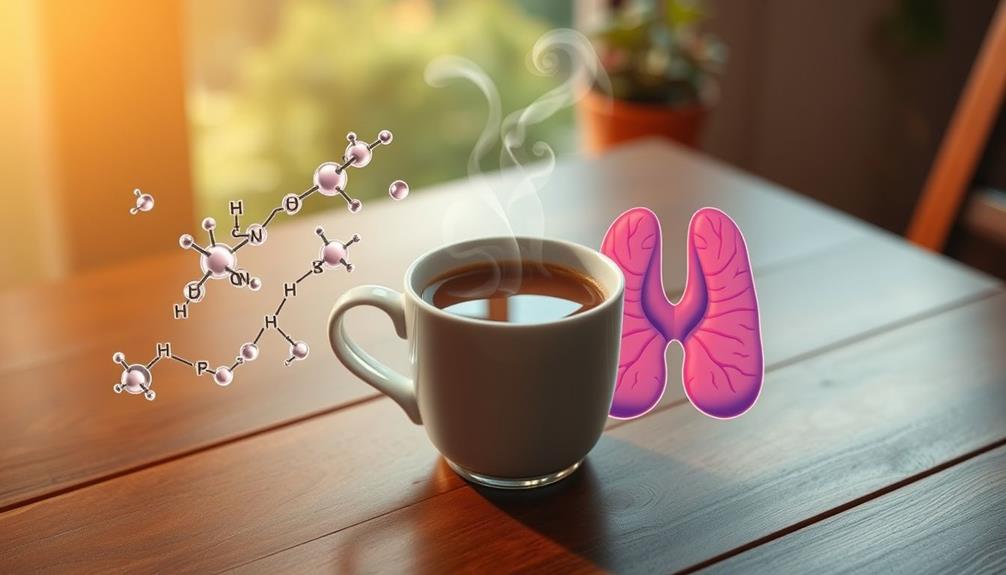
Hormonal health isn't solely about testosterone or cortisol; thyroid function plays an important role, too. When it comes to caffeine and hormones, particularly regarding thyroid health, the effects can be complex.
While some studies suggest caffeine may inhibit thyroid hormone production in animal models, human data is still lacking. In addition, factors such as energy-efficient models can influence overall well-being, including hormonal balance, by promoting a healthier living environment.
Consider these key points about caffeine intake and thyroid health:
- Individual responses to caffeine vary greatly, especially if you have thyroid conditions.
- Excessive caffeine might pose risks for those already facing thyroid issues.
- Caffeine can interfere with the absorption of thyroid medications; it's best to wait 30-60 minutes post-medication before drinking coffee.
- Symptoms of hyperthyroidism, like increased heart rate and anxiety, may worsen with caffeine consumption.
- More research is necessary to fully understand the long-term effects of caffeine on thyroid function.
With these factors in mind, it's essential to monitor your caffeine intake, especially if you're on thyroid medications or have existing thyroid disorders.
Stay informed and consult your healthcare provider for personalized advice.
Recommendations for Coffee Consumption
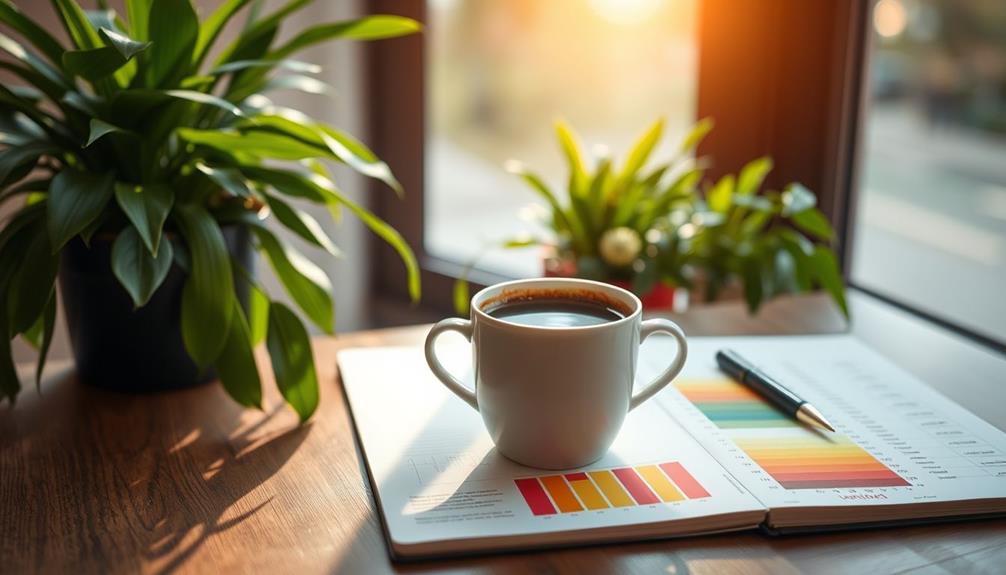
When it comes to enjoying your daily cup of coffee, keeping a few recommendations in mind can help you maintain better hormonal health.
First, consider limiting your coffee intake to one to two cups per day. This can support hormonal balance and reduce the risk of elevated cortisol levels, which are often linked to stress.
Opt for organic coffee to minimize your exposure to pesticides and toxins that could disrupt your endocrine system.
Additionally, avoid adding sugar to your coffee. This prevents blood sugar spikes and reduces inflammation, both of which can negatively impact hormone levels.
It's also wise to prioritize breakfast before consuming your coffee. This practice stabilizes your blood sugar and improves your caffeine tolerance, helping to mitigate any adverse effects on insulin sensitivity.
If you're dealing with hormone imbalances or chronic stress, you might want to experiment with your coffee consumption to find what works best for you.
Understanding your caffeine sensitivity can make a significant difference in how your body reacts.
Frequently Asked Questions
What Does Coffee Do to Your Hormones?
Coffee can elevate cortisol and alter insulin sensitivity, impacting your hormonal balance. It might boost testosterone levels while influencing estrogen differently based on individual factors. Pay attention to how it affects your body personally.
Is Coffee Bad for Cortisol Levels?
Yes, coffee can negatively impact your cortisol levels. It raises cortisol in response to stress, and regular consumption can lead to chronic elevation, potentially causing hormonal imbalances and exacerbating anxiety or sleep disturbances over time.
What Hormone Does Coffee Stimulates Your Brain?
Did you know that caffeine can boost dopamine levels by up to 30%? When you drink coffee, it stimulates your brain's release of dopamine, enhancing your mood, focus, and overall cognitive performance, making you feel more alert.
Does Caffeine Affect the Pituitary Gland?
Yes, caffeine does affect your pituitary gland. It stimulates the release of adrenocorticotropic hormone, increasing cortisol production. This reaction can vary based on your genetics and caffeine metabolism, influencing your stress response.
Conclusion
In summary, understanding how coffee affects your hormones is essential for maintaining your overall health. While caffeine can give you that morning boost, it's important to be mindful of its impact on insulin, testosterone, and thyroid function. So, don't just sip away thoughtlessly—stay informed and find a balance that works for you. After all, you wouldn't want your hormones to throw a wild party while you're just trying to enjoy your cup of joe!
In the vast and diverse world of coffee, coffee alternatives, and tea, Olivia has found her calling. As an author and a dedicated coffee and tea aficionado, her work for Cappuccino Oracle reflects her profound love and understanding of the intricate complexities found within these beverages. Olivia’s passion for the subject serves as both a catalyst for her creativity and a connection point with her audience.
Olivia’s appreciation for coffee, coffee alternatives, and tea blossomed at an early age. She discovered that these beverages invigorated her senses and stimulated her creative spirit. From the nuanced flavors of single-origin roasts to the captivating narratives intertwined with coffee, coffee alternatives, and tea trade and culture, Olivia found an unlimited source of inspiration in her daily cup.
Her love for these beverages and her talent for storytelling eventually converged at Cappuccino Oracle. As an author, Olivia’s mission is to illuminate the intricate tapestry that makes up the world of coffee, coffee alternatives, and tea. Her articles span a diverse range of topics, encompassing everything from the unique flavors of different brews to the sociocultural history intertwined with their cultivation and consumption.
Coffee Basics
How Much Is a Small Hot Coffee at Dunkin Donuts

At Dunkin Donuts, we understand the impact a great cup of coffee can have on brightening your day.
So, how much does a small hot coffee cost? Well, we’ve got the inside scoop for you.
In this article, we’ll break down the prices of various small hot coffee options at Dunkin Donuts. From regular to flavored, and even specialty coffees, we’ll help you find the perfect cup to start your day off right.
Let’s dive in and discover the affordable and delicious options waiting for you at Dunkin Donuts.

Key Takeaways
- Regular small hot coffee at Dunkin Donuts costs around $2.
- Dunkin Donuts offers a variety of flavored small hot coffees, including French Vanilla, Cinnamon, Hazelnut, Blueberry, and Caramel.
- Dunkin Donuts offers a range of specialty small hot coffees with flavors like caramel swirl, French vanilla, hazelnut, and mocha.
- Dunkin Donuts provides milk alternatives such as almond milk, oat milk, and coconut milk for those looking for a dairy-free option.
Regular Small Hot Coffee
We usually pay around $2 for a regular small hot coffee at Dunkin Donuts. When it comes to cost comparison, Dunkin Donuts is often seen as more affordable than other coffee chains. For those on a budget, this is great news.
In terms of caffeine content, a regular small hot coffee at Dunkin Donuts typically contains around 215 milligrams of caffeine. This amount can provide a good boost of energy for those who need it. However, it’s important to note that caffeine content can vary depending on the type of coffee beans used and the brewing method.
Flavored Small Hot Coffee
Moving on to the topic of flavored small hot coffee at Dunkin Donuts, our go-to choice for a caffeine boost and an indulgent treat. Dunkin Donuts offers a variety of flavored coffee alternatives to satisfy different taste preferences. These flavored coffees are created by infusing the beans with natural extracts and oils, providing a delightful twist to your regular cup of joe. The benefits of flavored coffee are twofold – they add an extra layer of flavor and aroma to your coffee, enhancing the overall experience, and they can help mask any bitter or unpleasant taste that may be present in the beans. Whether you prefer the rich sweetness of French Vanilla, the warm spice of Cinnamon, or the creamy indulgence of Hazelnut, Dunkin Donuts has a flavored small hot coffee to suit your desires.
| Flavored Small Hot Coffee | ||
|---|---|---|
| French Vanilla | Cinnamon | Hazelnut |
| Blueberry | Caramel |
Indulge yourself with these delicious flavor options and elevate your coffee experience at Dunkin Donuts.
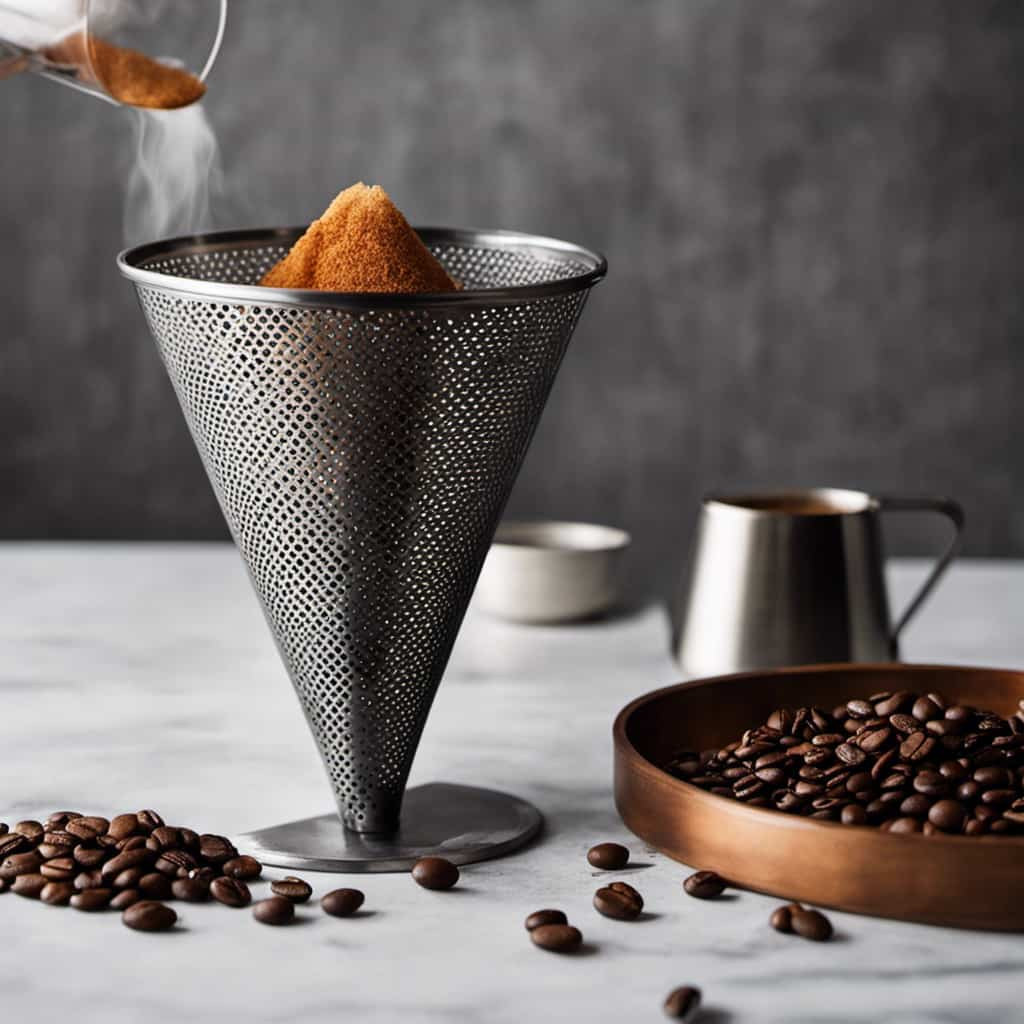
Specialty Small Hot Coffee
For our caffeine connoisseurs seeking a unique and flavorful experience, Dunkin Donuts offers a range of specialty small hot coffees. These specialty coffees are crafted with care and attention to detail, providing a delightful and satisfying drinking experience.
One of the benefits of drinking small hot specialty coffee is the opportunity to try a variety of flavors that aren’t typically found in regular coffee. Dunkin Donuts offers a selection of popular flavors such as caramel swirl, French vanilla, hazelnut, and mocha. These flavors add a touch of sweetness and richness to the coffee, enhancing the overall taste.
Whether you prefer a classic flavor or something more adventurous, our specialty small hot coffees are sure to please your taste buds.
Small Hot Coffee With Milk Alternatives
Milk alternatives can be added to small hot coffee at Dunkin Donuts for those looking for a dairy-free option. Dunkin Donuts offers a variety of milk alternatives that customers can choose from to customize their small hot coffee. These milk alternatives provide a range of benefits for those who prefer to avoid dairy products in their coffee. Here is a table showcasing some of the milk alternatives available at Dunkin Donuts:

| Milk Alternatives | Benefits |
|---|---|
| Almond Milk | Dairy-free, low in calories and fat |
| Oat Milk | Creamy texture, nutty flavor |
| Coconut Milk | Rich and creamy, adds a tropical twist |
Adding milk alternatives to small hot coffee not only caters to customers with dietary restrictions, but it also allows them to enjoy the flavor and texture they desire. Now, let’s move on to the next section about small hot coffee with add-ons.
Small Hot Coffee With Add-Ons
Continuing our exploration of customizing small hot coffee at Dunkin Donuts, here are four options to consider that can enhance the flavor and experience:
- Flavor Shots: Add a burst of flavor to your coffee with options like vanilla, caramel, hazelnut, or mocha. These shots are a great way to personalize your beverage and satisfy your taste buds.
- Sweeteners: Customize the level of sweetness by adding sugar, artificial sweeteners, or natural alternatives like honey or stevia. This allows you to control the amount of sweetness to suit your preferences.
- Creamers: Dunkin Donuts offers a variety of creamers, including regular milk, almond milk, oat milk, or soy milk. These options cater to different dietary needs and add a creamy texture to your coffee.
- Spices: Enhance the flavor profile of your coffee by adding spices like cinnamon, nutmeg, or cardamom. These spices can add warmth and depth to your beverage.
Frequently Asked Questions
Are There Any Seasonal Flavors Available for the Flavored Small Hot Coffee at Dunkin Donuts?
Yes, there are seasonal flavors available for the flavored small hot coffee at Dunkin Donuts. Additionally, there are sugar alternatives available for those who prefer a different sweetener option.
Can I Customize the Sweetness Level of the Specialty Small Hot Coffee?
At Dunkin Donuts, you can personalize your specialty small hot coffee by choosing the sweetness level. Additionally, they offer decaf options for those who prefer less caffeine.

Are There Any Non-Dairy Milk Alternatives Available for the Small Hot Coffee at Dunkin Donuts?
Yes, there are non-dairy milk alternatives available for the small hot coffee at Dunkin Donuts. We understand that everyone has different coffee preferences and strive to accommodate them.
Can I Add Whipped Cream to My Small Hot Coffee?
Yes, whipped cream is available as a customization option for our small hot coffee at Dunkin Donuts. It’s a delightful addition that can enhance the flavor of your coffee. Enjoy!
Is There a Limit on the Number of Add-Ons I Can Have in My Small Hot Coffee at Dunkin Donuts?
There are limitations on the number of add-ons for a small hot coffee at Dunkin Donuts. However, they offer alternatives for non-dairy milk, ensuring that everyone’s preferences are accommodated.
Conclusion
In conclusion, the price of a small hot coffee at Dunkin’ Donuts varies depending on the type of coffee you choose. A regular small hot coffee is priced at around $1.99, while a flavored small hot coffee costs approximately $2.49. For those looking for a specialty small hot coffee, the price is around $2.99.
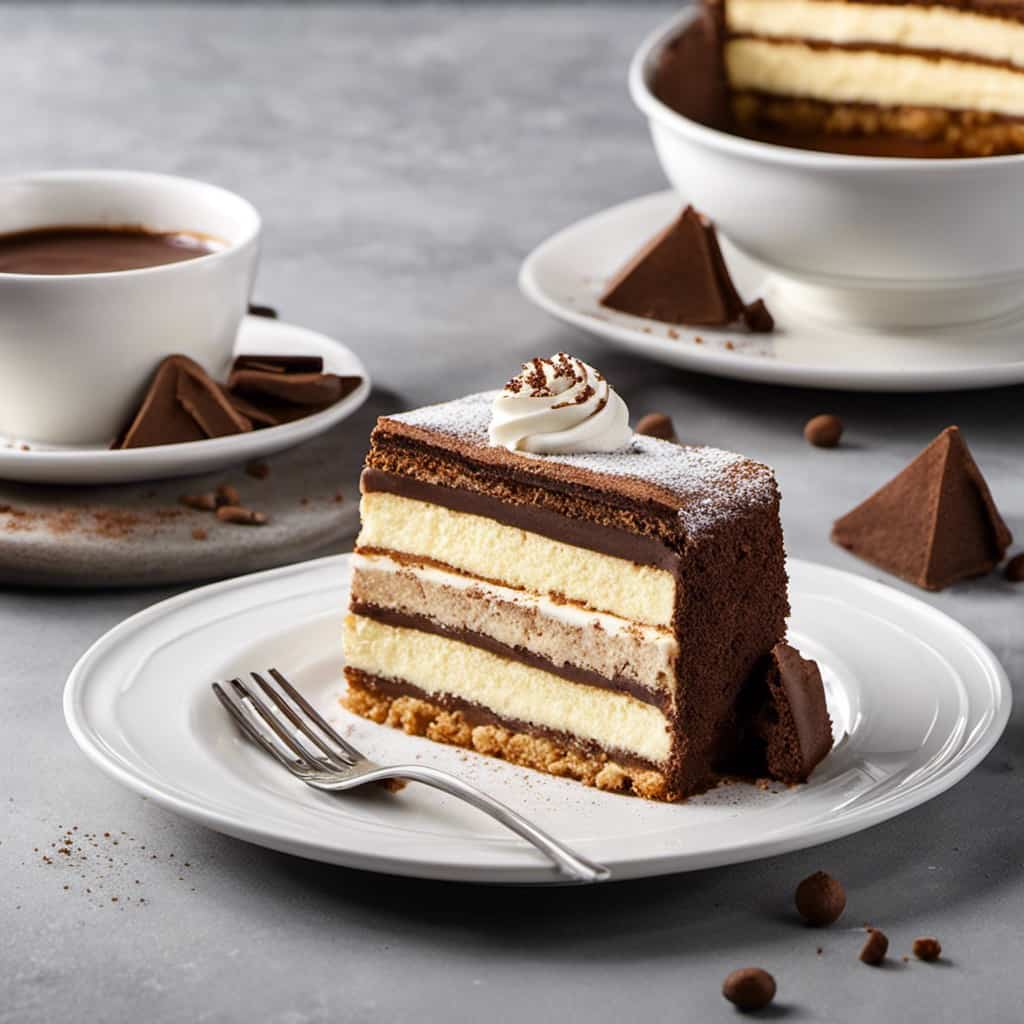
It’s interesting to note that Dunkin’ Donuts offers a variety of milk alternatives, such as almond milk and oat milk, for an additional charge of $0.50.
Justin is a seasoned author, coffee and tea enthusiast, and an essential member of the Cappuccino Oracle team. With a keen appreciation for the complexities of coffee, coffee alternatives, and tea, Justin has dedicated his professional career to exploring these realms and sharing his insights with readers worldwide.
Justin’s immersion in the world of coffee, coffee alternatives, and tea began at a young age, kindling a passion that extended beyond mere consumption. This love for these beverages led him to combine his talent for writing with his devotion to coffee and tea, bringing him to Cappuccino Oracle as a dedicated author.
Coffee Basics
How Much Is a Iced Coffee at Mcdonald’s

Do you have a hankering for a chilly iced coffee from McDonald’s? Don’t worry, we’ve got you covered! In this article, we’ll delve into the realm of McDonald’s iced coffees, examining their prices, sizes, flavors, and more.
So, whether you’re a fan of the classic regular iced coffee or prefer something a little more indulgent with flavored options, we’ll provide you with all the information you need to satisfy your caffeine cravings.
Let’s embark on this delightful journey together!
Key Takeaways
- The price of regular iced coffee at McDonald’s starts at $1.39 and may vary based on location and promotions.
- Flavored iced coffee at McDonald’s comes in small, medium, and large sizes, with prices starting at $2.49.
- McDonald’s offers a variety of flavors for their iced coffee, including vanilla, caramel, hazelnut, and mocha.
- Customers can customize their iced coffee with add-ons like flavored syrups, whipped cream, and extra espresso shots, but extra charges may apply.
Regular Iced Coffee Prices
Our regular iced coffee’s price at McDonald’s is determined by the size and any additional customization. The standard size for our regular iced coffee is 16 ounces, and it starts at $1.39. However, the price may vary depending on the location and any special promotions or discounts available.

At McDonald’s, we offer a variety of flavors for our iced coffee, including classic vanilla and caramel. As for the brewing methods, we use a combination of freshly brewed coffee and ice to create a refreshing and flavorful beverage.
Our goal is to serve our customers with a delicious and affordable iced coffee experience, ensuring that they have options to customize their drink according to their preferences.
Flavored Iced Coffee Prices
To determine the prices of flavored iced coffee at McDonald’s, we take into account the size and any additional customization options. McDonald’s offers a variety of flavored iced coffee options to suit different tastes. Some of the popular iced coffee flavors include caramel, vanilla, hazelnut, and mocha. Each flavor adds a unique twist to the classic iced coffee, providing customers with a refreshing and flavorful experience.
The prices for flavored iced coffee start at around $2.49 for a small size, $2.89 for a medium size, and $3.39 for a large size. These prices may vary depending on the location and any additional customization options, such as adding whipped cream or extra syrup.
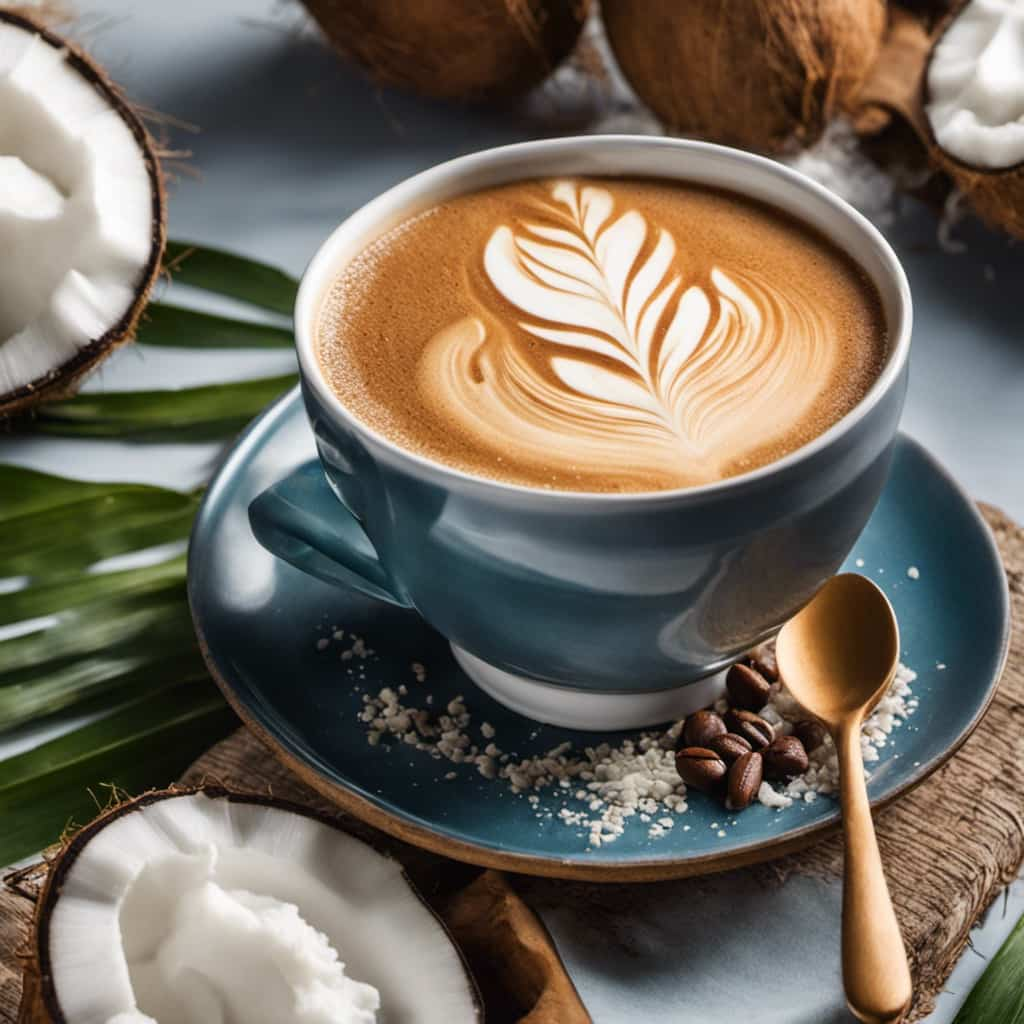
Now, let’s move on to discuss the different sizes and prices of McDonald’s iced coffee.
Iced Coffee Sizes and Prices
The prices and sizes of McDonald’s iced coffee offerings vary depending on the location and any additional customization options. McDonald’s offers a range of sizes for their iced coffee, including small (12 oz), medium (16 oz), and large (22 oz). Each size comes with its own price point, which also varies by location.
As for flavors, McDonald’s typically offers classic iced coffee options such as regular, vanilla, caramel, and mocha. The calories in McDonald’s iced coffee vary based on the size and any additional flavorings or toppings. It’s important to note that these numbers can also vary depending on the specific ingredients used at different locations.
Now that we’ve covered the sizes and prices of McDonald’s iced coffee, let’s move on to discuss the available add-ons and any extra charges that may apply.

Iced Coffee Add-Ons and Extra Charges
For iced coffee at McDonald’s, there are various add-ons and extra charges available. If you’re looking to customize your iced coffee, you can choose from a range of options such as flavored syrups, whipped cream, and additional espresso shots. However, it’s important to note that these add-ons may come with extra charges.
The prices for customization vary depending on the specific add-on and the location of the McDonald’s restaurant. Some popular iced coffee flavors include vanilla, caramel, and mocha. These flavors can add a delicious twist to your iced coffee experience.
Keep in mind that the prices for add-ons and extra charges are subject to change, so it’s always a good idea to check with your local McDonald’s for the most accurate information.
Now let’s move on to the next section and explore the exciting world of iced coffee discounts and promotions.

Iced Coffee Discounts and Promotions
Now let’s explore the exciting world of iced coffee discounts and promotions at McDonald’s.
McDonald’s frequently offers specials and promotions on their iced coffee, allowing customers to enjoy their favorite flavors at a discounted price. These promotions can vary by location and time of year, so it’s always a good idea to check with your local McDonald’s for current offers.
Some popular flavors of iced coffee at McDonald’s include caramel, vanilla, hazelnut, and mocha. These flavors can be enjoyed with or without cream and sugar, allowing for a customized experience.
Whether it’s a buy one get one free promotion or a discounted price for a limited time, McDonald’s offers a variety of ways to enjoy their delicious iced coffee at a great value.

Frequently Asked Questions
What Are the Nutritional Facts for Mcdonald’s Regular Iced Coffee?
When it comes to McDonald’s regular iced coffee, there are customization options available to suit your preferences. Additionally, it’s worth noting the nutritional benefits of this refreshing beverage.
Can I Customize the Sweetness Level of My Flavored Iced Coffee at Mcdonald’s?
Yes, you can customize the sweetness level of your flavored iced coffee at McDonald’s. They offer a range of customization options, allowing you to adjust the sweetness to your liking. Additionally, they also have decaf iced coffee available.
Are There Any Seasonal or Limited-Time Flavors Available for Mcdonald’s Iced Coffee?
Seasonal flavor options and special promotions for our iced coffee are available at McDonald’s. We offer a variety of limited-time flavors to satisfy your taste buds and keep things exciting.
Does Mcdonald’s Offer Any Non-Dairy Milk Options for Their Iced Coffee?
At McDonald’s, we offer non-dairy milk options for our iced coffee, making it vegan-friendly. Customers can choose from alternatives like almond milk or oat milk to enjoy their refreshing iced coffee.
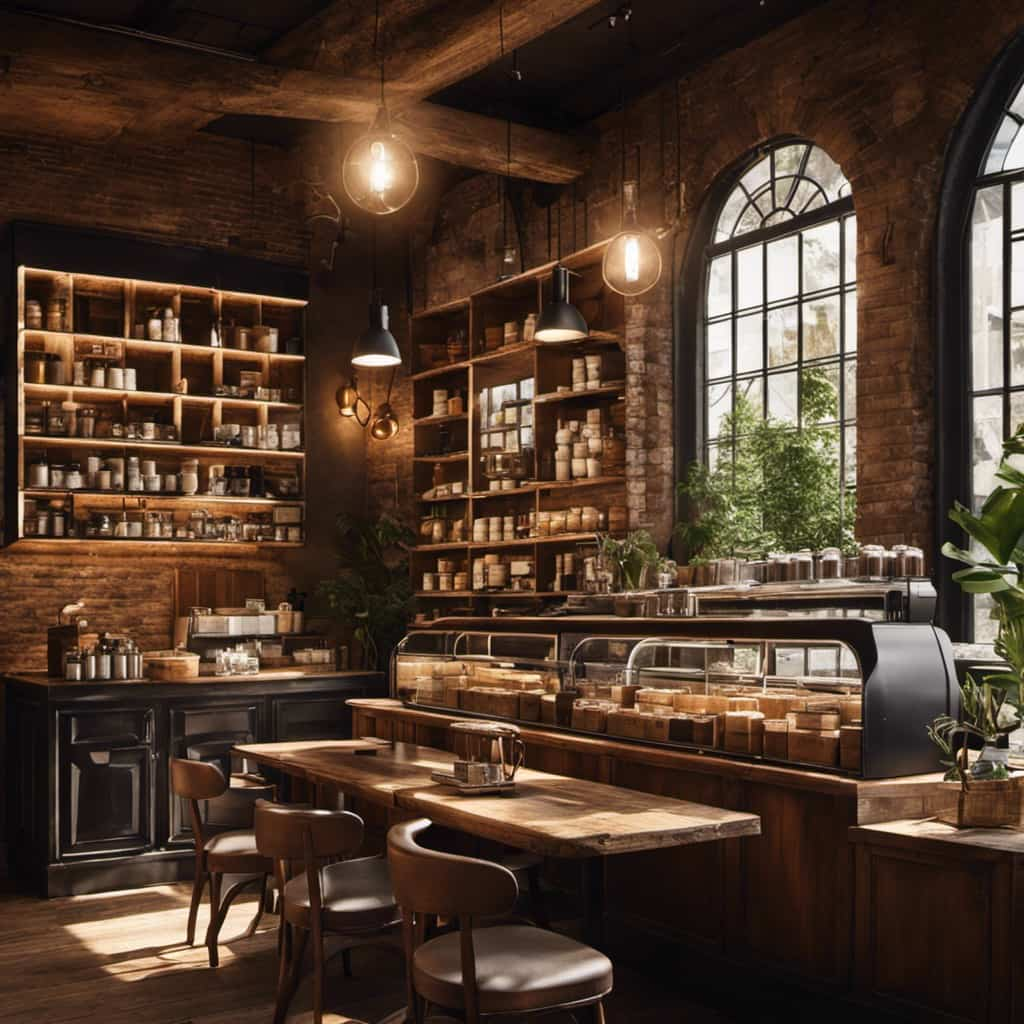
Are There Any Secret Menu Items or Hacks for Getting a Cheaper Iced Coffee at Mcdonald’s?
The best ways to save money at McDonald’s include ordering customized drinks. Tips for ordering at fast food restaurants can help you get cheaper iced coffee. Try secret menu items or hacks for discounts.
Conclusion
In conclusion, McDonald’s offers a variety of iced coffee options at reasonable prices. The regular iced coffee starts at just $1.99, while the flavored ones are slightly higher at $2.49. Customers can choose from different sizes, ranging from small to large, with corresponding prices.
Additionally, there are various add-ons available for an extra charge. It’s worth checking for any discounts or promotions to make the most out of your iced coffee experience at McDonald’s.
Justin is a seasoned author, coffee and tea enthusiast, and an essential member of the Cappuccino Oracle team. With a keen appreciation for the complexities of coffee, coffee alternatives, and tea, Justin has dedicated his professional career to exploring these realms and sharing his insights with readers worldwide.
Justin’s immersion in the world of coffee, coffee alternatives, and tea began at a young age, kindling a passion that extended beyond mere consumption. This love for these beverages led him to combine his talent for writing with his devotion to coffee and tea, bringing him to Cappuccino Oracle as a dedicated author.
Coffee Basics
Nostalgic 90s Vibes: Coffee Rum Combos For Cocktails

Ah, the 90s. A time when grunge music dominated the radio, Walkmans were our cherished gadgets, and coffee shops were the go-to hangout spots. If you’re feeling nostalgic like me and longing for those days gone by, coffee rum cocktails are a great way to reminisce and take a trip down memory lane.
Picture this: it’s a warm summer evening, the sun is setting, and you’re sitting on a porch swing, sipping on a deliciously smooth and indulgent cocktail. The combination of coffee and rum creates a flavor profile that is both unique and comforting, reminiscent of the era we hold dear.
Now, there are two tried and tested coffee rum combinations that are sure to satisfy your craving for those 90s vibes.
The Boozy Java Float, with its rich blend of brewed coffee, dark rum, Kahlua liqueur, melted chocolate, and topped with whipped cream or vanilla ice cream, is a true indulgence.
Or, if you prefer something simpler, the Jamaica Coffee, made with brewed coffee, dark rum, coffee flavored liqueur, whipped cream, and a chocolate coffee bean garnish, is a classic choice.
To truly elevate your coffee rum cocktails, be sure to use freshly brewed coffee and high-quality dark rum. And don’t forget the optional toppings like nutmeg and chocolate shavings for that extra burst of flavor.
So, why not channel your inner 90s vibes and enjoy the nostalgia with these delightful coffee rum combos? It’s time to indulge in a taste of the past.
Key Takeaways
- Coffee and rum make a great combination for cocktails, with two tested coffee rum combinations: Boozy Java Float and Jamaica Coffee.
- Recommended ingredients for coffee rum cocktails include freshly brewed coffee, high-quality dark rum, and optional toppings like nutmeg and chocolate shavings.
- Spiced rum is good for sipping and adds flavor to cocktails, while coffee liqueur is a concentrated alcoholic version of a coffee cocktail.
- Coffee rum cocktails have a nostalgic 90s vibe and can be made in 10 minutes or less, with many variations to try.
What’s in it?
I’ll tell you what’s in these nostalgic 90s coffee rum cocktails. The history of coffee and rum cocktails goes way back, and it’s no wonder why they make such a great combination.
When exploring the flavor profiles of different types of rum in coffee cocktails, you’ll discover that darker rum can add a rounded and rich flavor. Spiced rum, on the other hand, is perfect for sipping or adding a flavorful twist to your cocktails.
To create these delightful concoctions, start by whisking together freshly brewed coffee, a coffee-flavored liqueur, and dark rum. If you have a sweet tooth, adding brown sugar to your mug will give it that extra touch of sweetness.
Finish off the cocktail with a dollop of homemade whipped cream and a sprinkle of nutmeg or shaved chocolate. Now you’re ready to enjoy the nostalgic 90s vibes of these coffee rum cocktails!
Different Combinations
Exploring various combinations of these 90s favorites reveals new and exciting flavors for the adventurous palate. When it comes to coffee rum cocktails, there are unique twists on classic recipes that can take your taste buds on a journey. One such twist is the addition of coconut cream to create a tropical vibe. Another option is to infuse the rum with spices like cinnamon and nutmeg for a warm and comforting flavor profile.
In addition to these variations, exploring international combinations of coffee rum cocktails can open up a world of possibilities. For example, in Spain, the Carajillo is made with a shot of espresso and a splash of rum, creating a rich and bold drink. In Italy, the Caffè Corretto adds a shot of rum to a traditional espresso, adding a touch of sweetness and depth.
By experimenting with different ingredients and techniques, you can create your own unique coffee rum combinations that will transport you back to the nostalgic 90s while adding a modern twist. So, grab your favorite coffee beans, premium dark rum, and let your creativity run wild in crafting the perfect coffee rum cocktail. Cheers!
| Unique Twists | International Variations |
|---|---|
| Coconut cream | Carajillo (Spain) |
| Spiced rum | Caffè Corretto (Italy) |
Tips and Recommendations
To enhance the flavors of your coffee rum creations, consider incorporating additional ingredients and techniques. Here are some tips and recommendations to take your coffee rum cocktails to the next level:
-
Experiment with Different Coffee Rum Brands:
- Try using premium coffee rum brands like KonaRed Coffee Rum or Mr. Black Cold Brew Coffee Liqueur for a truly rich and flavorful experience.
- Don’t be afraid to mix different brands together to create unique flavor profiles.
-
Best Coffee Rum Cocktails:
- Explore classic recipes like the Espresso Martini, which combines coffee rum, vodka, and espresso for a bold and energizing cocktail.
- For a tropical twist, try the Coconut Rum Iced Coffee, blending coffee rum, coconut rum, and cold brew coffee over ice.
-
Get Creative with Garnishes:
- Elevate your coffee rum cocktails with garnishes like cinnamon sticks, chocolate-covered espresso beans, or even a sprinkle of sea salt for a touch of sophistication.
Remember, the key to a great coffee rum cocktail is using high-quality ingredients and experimenting with different flavor combinations. Cheers to nostalgic 90s vibes and unforgettable coffee rum experiences!
Frequently Asked Questions
Are there any non-alcoholic alternatives for coffee rum cocktails?
Yes, there are non-alcoholic alternatives for coffee rum cocktails. Creative ways to infuse coffee flavors into non-alcoholic drinks include using coffee syrups, cold brew concentrate, or coffee-flavored soda. These options provide the same coffee taste without the alcohol.
Can I use flavored rum instead of dark rum in coffee rum cocktails?
Yes, you can definitely use flavored rum instead of dark rum in coffee rum cocktails. It adds a unique twist to the drink and allows for more creativity in terms of flavor combinations. There are endless variations of coffee rum cocktails to explore with flavored rum alternatives.
How can I make a coffee rum cocktail without whipped cream or ice cream?
Making a coffee rum cocktail without whipped cream or ice cream? No problem! Try using alternative sweeteners like honey or maple syrup. And for unique garnishes, experiment with cinnamon sticks, citrus peels, or even a sprinkle of cocoa powder. Cheers!
Are there any coffee rum cocktails that use a different type of coffee bean?
For creative twists on traditional coffee rum cocktails, try using different coffee bean flavors like Ethiopian Yirgacheffe or Costa Rican Tarrazu. These unique beans can add depth and complexity to your coffee rum concoctions.
Can I substitute coffee liqueur with another type of alcoholic beverage in coffee rum cocktails?
Yes, you can substitute coffee liqueur with other alcoholic beverages in coffee rum cocktails. Try using amaretto for a nutty twist or Irish cream for a creamy flavor. Get creative and experiment with different combinations!
Conclusion
In conclusion, these coffee rum combos are the perfect way to bring back the nostalgic 90s vibes. The Boozy Java Float and Jamaica Coffee offer unique and delicious flavor profiles that’ll transport you back in time. By using freshly brewed coffee and high-quality dark rum, you can ensure the best taste experience.
Don’t forget to add optional toppings like nutmeg and chocolate shavings for that extra burst of flavor. So, sip, savor, and succumb to the sensational sensations of these sensational coffee rum concoctions.
Arf, an author and an innovative enthusiast of coffee, coffee alternatives, and tea, plays a crucial role as a contributor to the esteemed Cappuccino Oracle platform. Renowned for his curiosity and passion for these captivating beverages, Arf has carved out a unique space for himself in the world of exploration and writing. He realized that coffee, coffee alternatives, and tea are not mere drinks to keep one awake, but universes of flavors and stories waiting to be explored.
Arf’s articles for Cappuccino Oracle blend meticulous research with personal experiences, providing readers with an in-depth understanding of various types of coffee, coffee alternatives, and tea, along with their unique characteristics, cultures, and histories. His honest reviews and engaging narratives guide readers on their own journeys, helping them discover their preferences and find their perfect brew.
-
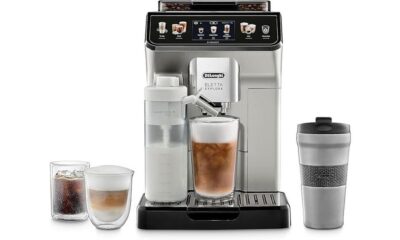
 Espresso Machines Reviews3 weeks ago
Espresso Machines Reviews3 weeks agoDeLonghi Eletta Explore: A Comprehensive Review [2025]
-

 Espresso Machines Reviews4 weeks ago
Espresso Machines Reviews4 weeks agoILAVIE 20 Bar Espresso Machine Review (2025)
-

 Espresso Machines Reviews4 weeks ago
Espresso Machines Reviews4 weeks agoSUMSATY Espresso Machine Review (2025)
-
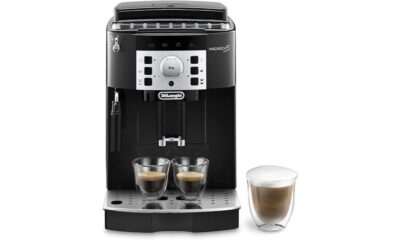
 Espresso Machines Reviews3 weeks ago
Espresso Machines Reviews3 weeks agoDeLonghi Magnifica S ECAM22.110.B Review: A Coffee Lover's Dream [2025]
-
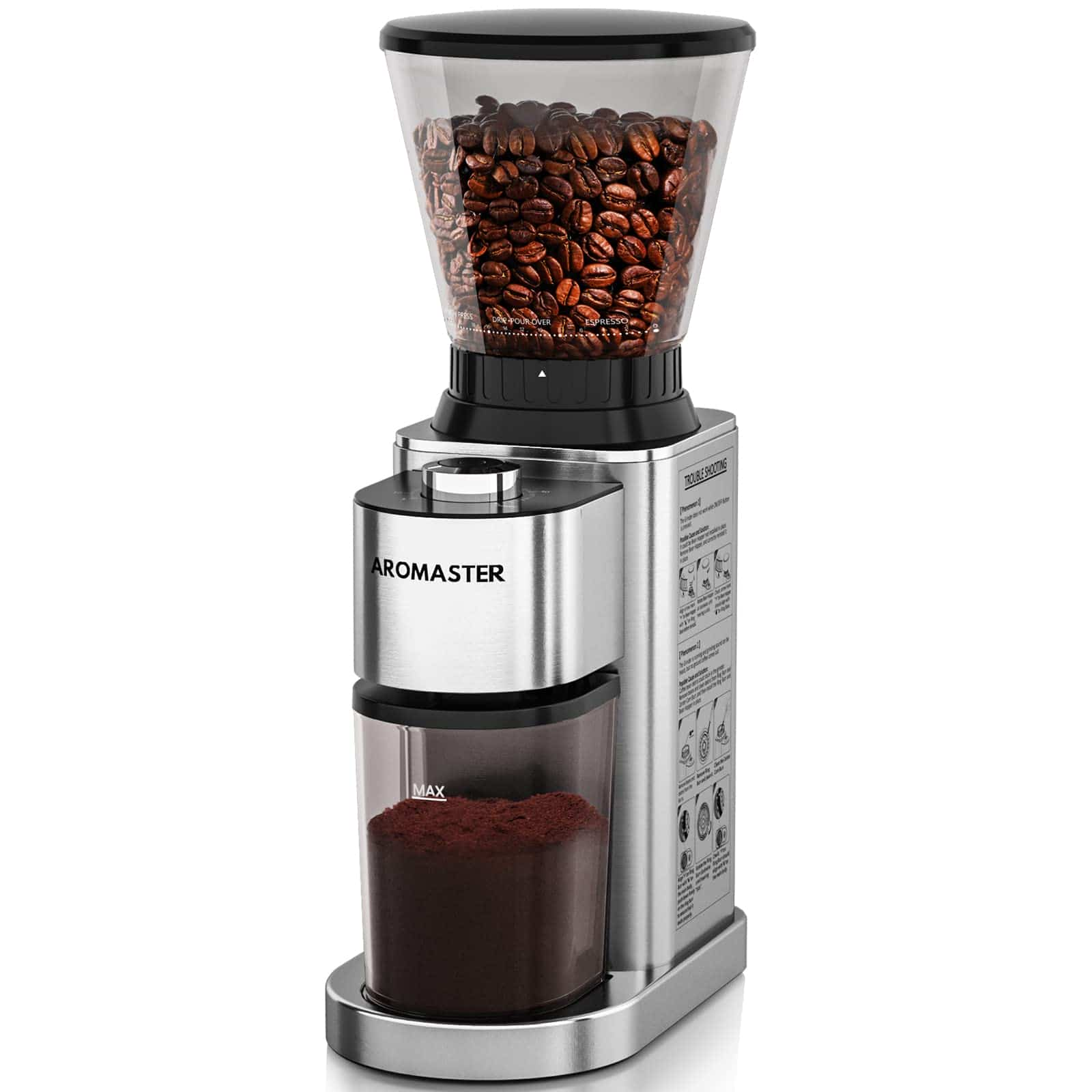
 Coffee Grinders Reviews4 weeks ago
Coffee Grinders Reviews4 weeks agoAromaster Burr Coffee Grinder Review (2025)
-

 Espresso Machines Reviews4 weeks ago
Espresso Machines Reviews4 weeks agoMAttinata Espresso Machine Review (2025)
-
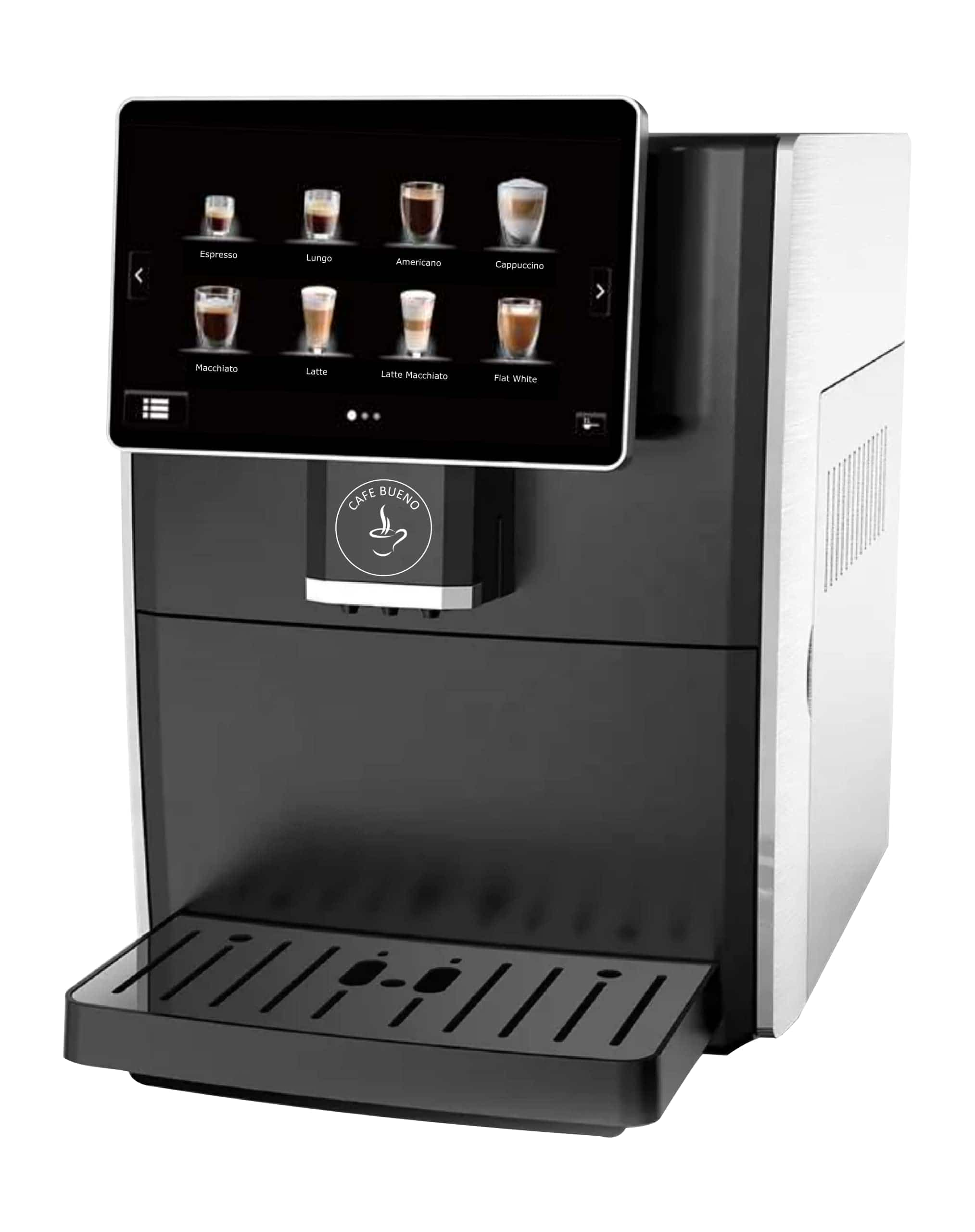
 Espresso Machines Reviews4 weeks ago
Espresso Machines Reviews4 weeks agoCafe Bueno Super Automatic Espresso Machine Review (2025)
-
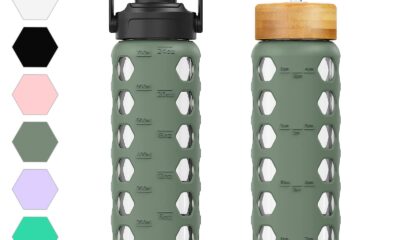
 Cappuccino Oracle Selected Reviews3 weeks ago
Cappuccino Oracle Selected Reviews3 weeks agoBest Glass Water Bottles for Eco-Friendly Hydration [2025]





























